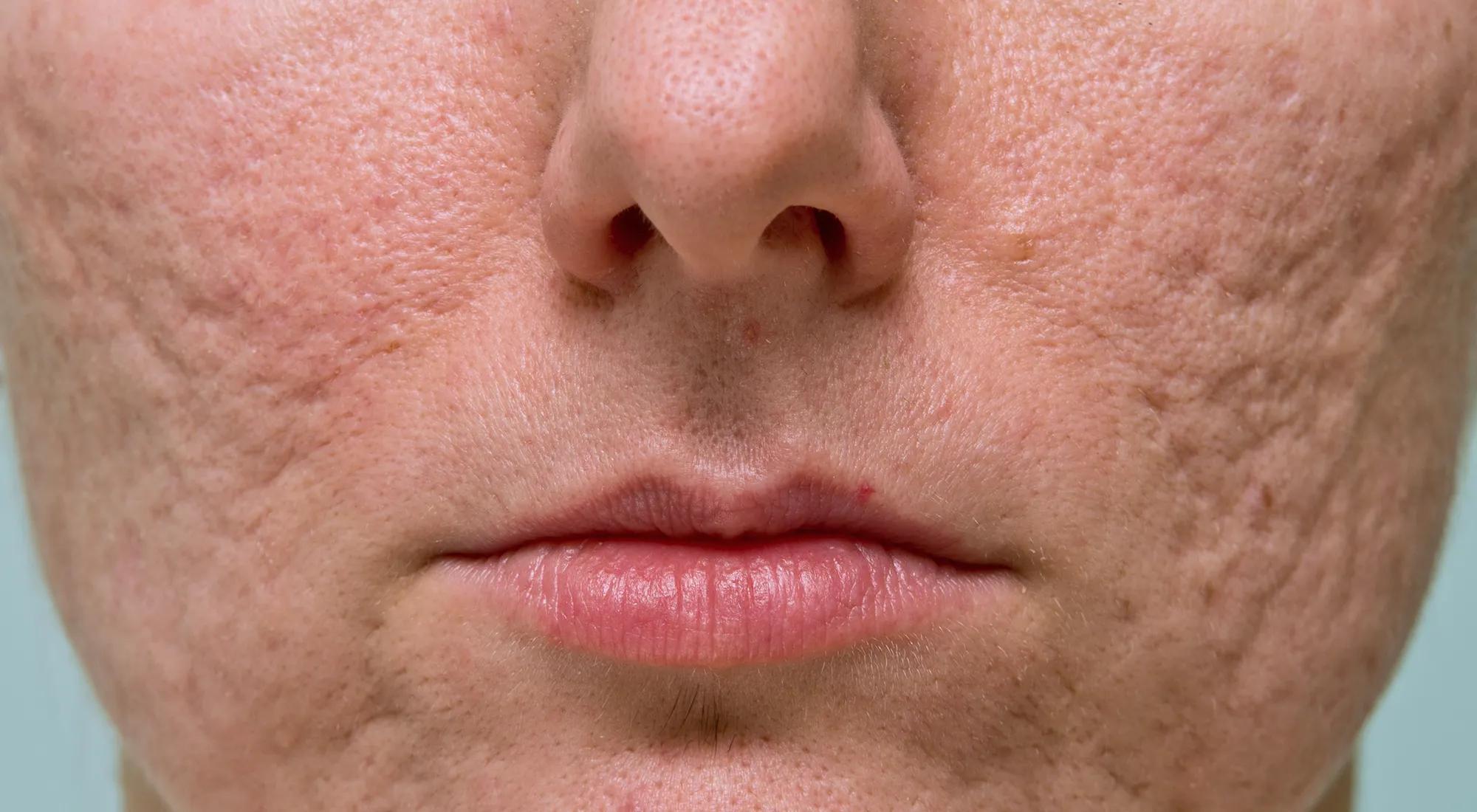When it comes to restoring skin confidence and achieving smoother, clearer skin, many people explore advanced dermatological solutions. At Dynamic Clinic, experienced dermatologists often recommend tailored procedures that precisely target stubborn scars, uneven texture, and pigmentation concerns. Among these solutions, chemical peels have emerged as a compelling choice for Acne Scar Treatment, particularly for individuals seeking long-lasting skin rejuvenation under medical supervision. If you’re considering ways to revive your skin’s appearance, it’s worth exploring how chemical peels might play a pivotal role in your Acne Scar Treatment In Dubai.
Understanding Acne Scars: Why Do They Form?
Before delving into chemical peels, it’s essential to understand the root cause of acne scars. Acne itself is an inflammatory condition involving clogged pores, bacteria, and excess oil production. When inflammation extends deep into the skin, it disrupts surrounding tissue. As the skin attempts to repair itself, it sometimes produces too little or too much collagen. This imbalance results in different types of scars:
-
Atrophic scars (depressions or pits, such as ice pick or boxcar scars) occur when there is insufficient collagen production.
-
Hypertrophic scars (raised or firm scars) develop when the skin produces too much collagen.
Effective treatment must go beyond superficial care. It requires a strategy that actively remodels the skin’s deeper layers to encourage healthier, more balanced tissue regeneration.
How Chemical Peels Address Acne Scars
Chemical peels involve applying a specialized chemical solution to the skin under the careful administration of a qualified dermatologist. This solution penetrates the skin layers, causing controlled exfoliation and eventual peeling. As the damaged outer layers shed, new skin emerges that is often smoother and more evenly toned.
Mechanisms Behind Chemical Peels for Acne Scar Treatment
-
Exfoliation of damaged tissue: Peels facilitate the removal of superficial scar tissue and promote cellular turnover.
-
Stimulation of collagen remodeling: Medium and deep chemical peels reach the dermis, stimulating fibroblasts to produce new collagen fibers. This process gradually fills atrophic scars and enhances skin texture.
-
Reduction in discoloration: Acne scars are frequently accompanied by post-inflammatory hyperpigmentation. Chemical peels break down excess melanin, creating a more uniform complexion.
Dermatologists tailor each peel based on scar type, skin sensitivity, and individual goals. By working with a skilled specialist, patients can expect a protocol that precisely aligns with their skin’s needs.
Types of Chemical Peels Used by Dermatologists
Not all peels are the same, and their depth of action dramatically influences outcomes. The primary classifications include:
1. Superficial Peels
-
Mild acids like alpha hydroxy acids (AHAs) gently exfoliate the epidermis.
-
Primarily target minor pigmentation and rough texture.
-
While they offer minimal downtime, they are typically less effective for deep acne scars.
2. Medium Peels
-
Trichloroacetic acid (TCA) is often used to penetrate the middle layers of skin.
-
Effective for moderate atrophic scars and significant discoloration.
-
Promote noticeable improvement in skin smoothness and tone.
3. Deep Peels
-
Usually involve higher-concentration TCA or phenol, reaching deeper dermal structures.
-
Suitable for pronounced acne scarring, though carefully selected for appropriate skin types.
-
Require longer recovery under close medical supervision, yielding profound textural improvement.
An expert dermatologist assesses the depth of your scars, overall skin health, and anticipated downtime to determine the most beneficial approach.
Benefits of Chemical Peels for Acne Scar Treatment
Choosing chemical peels under the direction of an experienced doctor offers multiple advantages:
Stimulates Natural Skin Renewal
By encouraging accelerated cell turnover, peels help replace scarred and pigmented cells with healthier, more uniform new skin.
Improves Collagen Production
Medium and deep peels ignite fibroblast activity in the dermis, gradually restoring volume to depressed scars.
Balances Skin Tone and Reduces Hyperpigmentation
Chemical peels break down clusters of melanin responsible for dark spots, delivering a clearer complexion.
Minimally Invasive Compared to Surgical Scar Revision
Unlike more aggressive surgical interventions, peels work without incisions or sutures, making them an appealing choice for many patients seeking effective yet non-surgical solutions.
Customizable and Repeatable
Dermatologists often create multi-session plans to layer improvement gradually, especially for resistant acne scars.
What to Expect During a Doctor-Guided Chemical Peel
When you consult a dermatologist at a clinic like Dynamic Clinic, the treatment journey typically involves:
Comprehensive Evaluation
Your doctor conducts a detailed skin assessment, examines scar types, reviews medical history, and discusses your lifestyle to identify the best peel depth and formulation.
Pre-Treatment Preparation
Depending on your skin type and the intensity of the peel, doctors may prescribe pre-conditioning regimens. These can include topical retinoids or lightening agents to optimize results and minimize complications.
Precise Application
During the session, the dermatologist meticulously applies the chosen chemical solution to your skin. This step requires exceptional precision to ensure uniform penetration and avoid overtreatment.
Monitored Reaction
The skin may whiten (a process known as “frosting”) or tingle as the solution activates. The doctor monitors every second, adjusting timing to balance efficacy with safety.
Neutralization and Post-Care Guidance
Once the desired effect is achieved, the peel is neutralized. Patients receive detailed aftercare instructions to support proper healing, such as using gentle cleansers, high SPF, and avoiding certain activities temporarily.
Why Choose a Dermatologist for Chemical Peels?
Though over-the-counter peels and spa-based treatments are widely marketed, acne scar management is complex and best handled by medical professionals. Here’s why:
-
Precision in Strength and Application: Only a dermatologist can safely use medium and deep peels that reach scarred dermal layers.
-
Personalized Protocols: A doctor considers factors like Fitzpatrick skin type (which influences pigmentation risk), depth of scars, and any underlying skin sensitivities.
-
Management of Expectations: A professional sets realistic goals and may combine peels with other treatments (like microneedling or laser sessions) in a staged plan for optimal results.
-
Safety Net for Complications: In rare instances of unexpected reactions, a dermatologist can promptly administer corrective interventions.
Long-Term Outcomes: How Effective Are Chemical Peels for Acne Scars?
While no single session completely erases acne scars, patients typically see substantial improvement across a treatment series. Results vary based on:
-
Scar type: Boxcar and rolling scars respond well, whereas very deep ice pick scars might still need adjunctive procedures.
-
Peel depth and frequency: Deeper or repeated peels offer progressively smoother, more uniform skin.
-
Patient adherence: Following all pre- and post-care guidelines significantly enhances outcomes.
Over months, collagen continues remodeling beneath the surface, leading to cumulative improvements in texture and firmness.
Additional Dermatologist Insights for Acne Scar Management
Experienced doctors often integrate chemical peels into a broader scar management plan. For example:
-
Sequential Approach: Starting with milder peels to prep the skin, followed by deeper treatments.
-
Combination Therapies: Pairing peels with microneedling or fractional lasers can amplify collagen stimulation and refine results.
-
Tailored Maintenance: Periodic lighter peels may be suggested to sustain clarity and prevent future breakouts that could worsen scarring.
By maintaining regular check-ins, patients ensure their skin remains on a progressive trajectory toward clarity.
The Real Benefits of Choosing Chemical Peels for Acne Scar Treatment
When overseen by a dermatologist, chemical peels offer more than aesthetic improvement—they deliver genuine skin rehabilitation. The process helps:
✅ Break down damaged collagen and encourage stronger rebuild.
✅ Reduce pigment clusters causing uneven tone.
✅ Smooth out irregular texture for a more refined look.
✅ Boost skin confidence, freeing you from heavy makeup reliance.
Because each session builds upon the last, patients often experience steady transformations that feel natural yet remarkably noticeable.
Conclusion:
Absolutely. Under expert dermatological care, chemical peels stand out as a powerful option for Acne Scar Treatment, particularly for individuals looking to improve texture, even out pigmentation, and support healthier collagen formation without surgery. Their customizable nature means your dermatologist can create a plan perfectly aligned to your skin’s unique needs and scar profile.
So if you’re struggling with the lingering marks of acne and seeking a professional path to smoother skin, discussing chemical peels with a qualified dermatologist is a proven step toward reclaiming your skin’s vitality. In Dubai’s advanced aesthetic landscape, you’ll find world-class experts ready to guide you with precision and care—helping you achieve transformative results with Acne Scar Treatment In Dubai.


